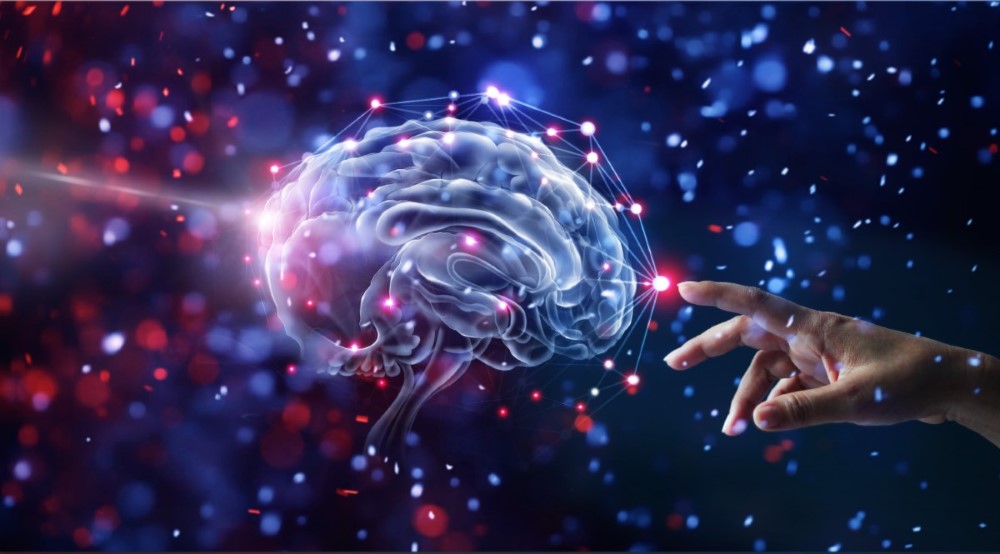Understanding Brain Chemistry in Addiction

Addiction is more than just a series of poor choices; it’s deeply rooted in the brain’s chemistry. The neurotransmitters in your brain, such as dopamine, serotonin, and norepinephrine, play a crucial role in addictive behaviors. Dopamine, often referred to as the ‘feel-good’ neurotransmitter, is significantly impacted during substance use, leading to the reinforcing nature of addiction.
Recent Discoveries in Neuroscience and Addiction
Cutting-edge research has revealed that addiction alters the brain’s reward system. This alteration is not just a temporary change but can lead to long-lasting effects, making recovery a challenging process. These discoveries emphasize that addiction is a complex brain disorder, not just a lack of willpower.
The Connection Between Mental Health and Substance Abuse
There is an undeniable link between mental health disorders and substance abuse. The brain’s chemical imbalances can lead to both addiction and mental health issues. Addressing mental health is crucial in treating addiction effectively, as these two aspects are often intertwined.
Impact of Genetics on Addiction
Your genetic makeup can influence your susceptibility to addiction. Studies have shown that certain genetic factors increase the likelihood of developing addictive behaviors. Understanding your genetic predisposition can be a vital part of your recovery journey.
Neuroplasticity: Hope in Recovery
Neuroplasticity, the brain’s ability to adapt and change, offers hope in addiction recovery. Despite the changes that addiction causes in the brain, recovery processes can rewire these pathways. This aspect of brain chemistry underscores the potential for healing and recovery in individuals struggling with addiction.
Controversial Topics in Neuroscience and Addiction
There is ongoing debate regarding the use of medication in treating addiction. While some argue that it’s replacing one addiction with another, research suggests that medication-assisted treatment can be a vital part of a comprehensive recovery plan.
Another contentious issue is the role of environmental factors versus biological predispositions in developing addiction. This debate underscores the complexity of addiction and the need for personalized treatment approaches.
Understanding the role of brain chemistry in addiction is crucial for effective treatment. It’s important to recognize that addiction is a multifaceted issue, requiring a combination of medical, psychological, and supportive approaches. By acknowledging the complexity of addiction, you can take a more informed and compassionate approach to recovery, whether it’s for yourself or someone you care about.
Delving Deeper into Brain Chemistry and Addiction
Interplay Between Addiction and Neurotransmitters
In the realm of addiction, neurotransmitters play a pivotal role. Substances that lead to addiction can directly or indirectly affect the brain’s reward pathway. This is primarily done through influencing dopamine, a key neurotransmitter in the reward system. Drugs of abuse either directly stimulate dopamine release or alter the activity of other neurotransmitters, which then impact the dopamine system.
Understanding Neuroadaptation in Addiction
Neuroadaptation is a critical concept in understanding addiction. It involves changes in the brain in response to repeated exposure to addictive substances (Alcohol or Other Drugs – AOD). This adaptation can manifest as either an increased response (sensitization) or a reduced response (counteradaptation) to the drug. These neuroadaptive changes directly affect how the brain responds to drugs over time, impacting reinforcement and the cycle of addiction.
Neurobiological Factors in Addiction
A key neurobiological factor in addiction involves the changes in dynorphin levels, a neurotransmitter, in brain areas like the nucleus accumbens and amygdala. Increased dynorphin levels contribute to a state of dysphoria (unease or dissatisfaction). This increase creates a negative feedback loop, reducing dopamine production. This mechanism is crucial in understanding the compulsive nature of drug taking and the ensuing addiction cycle.
Central Brain System in Addiction
The mesolimbic dopamine pathway, often termed the reward circuit, is central to addiction. Originating in the ventral tegmental area (VTA), this pathway extends to the nucleus accumbens, a key area in processing rewards. Alterations in this pathway are fundamental to the development of addictive behaviors. Dopamine neurons in the VTA and their axonal projections to the nucleus accumbens are particularly implicated in addiction.
Linking these concepts to the broader understanding of addiction, it’s evident that the brain’s response to addictive substances is not just a matter of individual choices or moral failing. It’s deeply rooted in complex neurobiological processes. The interaction between various neurotransmitters and the brain’s reward circuitry provides a more comprehensive view of the challenges faced in overcoming addiction. This understanding is crucial not only for individuals struggling with addiction but also for developing effective treatment strategies that address these underlying neurobiological mechanisms.
The Future of Addiction Treatment Through Brain Mapping
Unlocking Personalized Treatment Approaches Understanding how brain chemistry influences addiction opens the door to more personalized treatment plans. For you or your loved ones grappling with addiction, this means therapies can be tailored based on individual brain chemistry and genetic predispositions. It’s a step towards treatments that are more effective and less of a one-size-fits-all approach.
Advancements in Early Intervention Strategies As we delve deeper into the relationship between neurotransmitters and addictive behaviors, it becomes possible to identify markers of addiction earlier. This knowledge could aid you in recognizing warning signs sooner, potentially leading to early intervention and more successful recovery outcomes.
Enhanced Understanding of Mental Health and Addiction The intersection of mental health and addiction is complex. The future of mapping the brain in relation to addiction promises clearer insights into this connection. It could help in developing integrated treatment strategies that address both mental health disorders and substance abuse simultaneously, providing a more holistic approach to your well-being.
Breaking Down Stigma with Scientific Insight As scientific discoveries continue to highlight addiction as a neurobiological condition, this can help in reducing the stigma associated with it. Understanding addiction through the lens of brain chemistry can foster greater empathy and support, changing societal attitudes. This shift can make it easier for you or someone you know to seek help without fear of judgment.
Innovations in Medication-Assisted Treatments With a deeper understanding of how various neurotransmitters are involved in addictive behaviors, future research could lead to the development of more effective medication-assisted treatments. These medications could better target the specific neurobiological changes in addiction, offering you more effective tools in the journey towards recovery.
If you’ve found the insights into the intricate relationship between brain chemistry and addiction compelling, I invite you to delve deeper into this fascinating topic. Understanding how neurotransmitters and addictive behaviors interact is not just enlightening; it’s a critical step towards better managing addiction and fostering recovery. Whether you’re personally affected, know someone who is, or are simply curious about the latest neuroscientific discoveries, your engagement and understanding can make a significant difference. I encourage you to explore further, ask questions, and join a conversation that could shed more light on this vital aspect of mental health and well-being. Your perspective and experiences are invaluable in enriching this ongoing dialogue.






